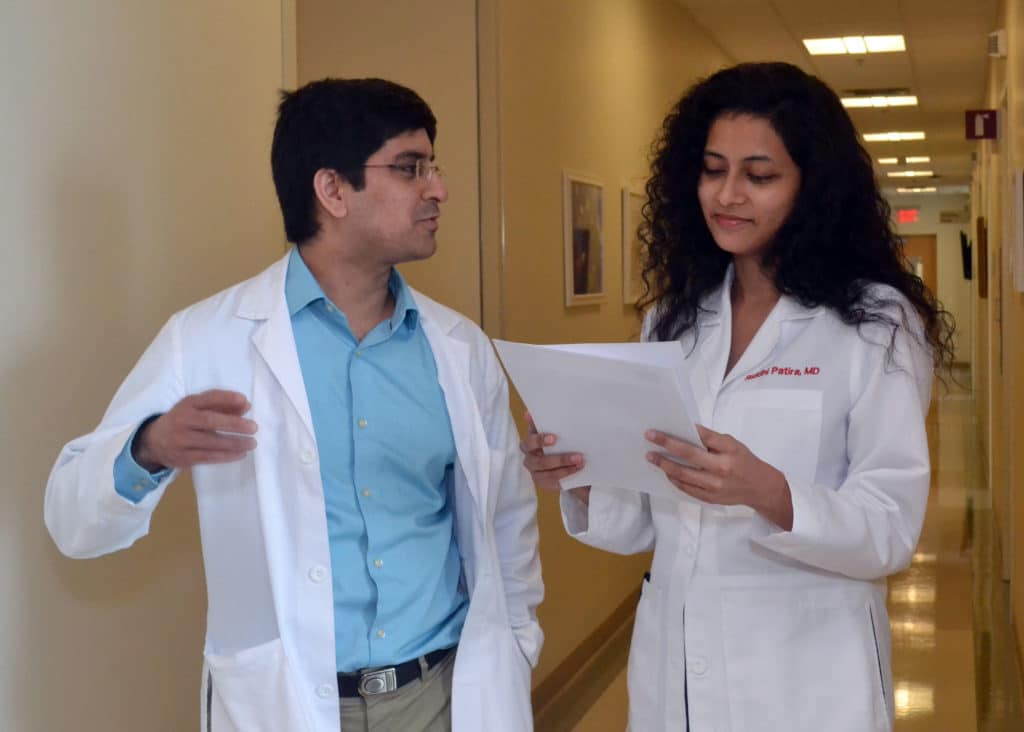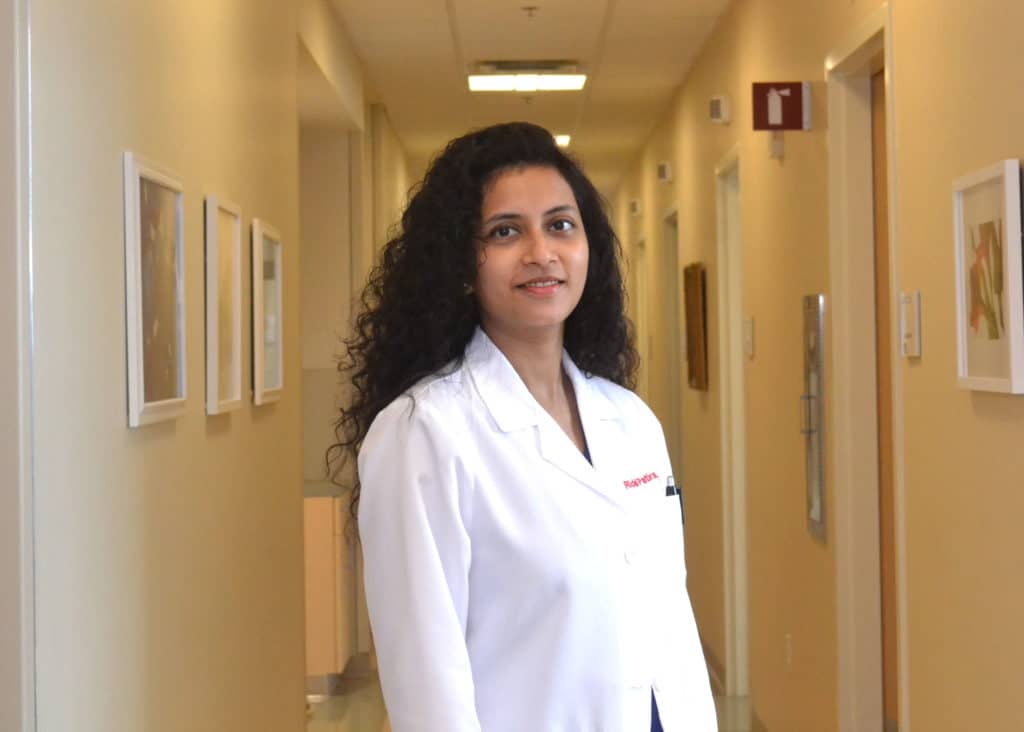By Joyce Lee
Five afternoons a week, Riddhi Patira, MD, sees patients and families in the Penn Memory Center clinic. She talks about their concerns with memory, evaluates their cognitive tests, neurological exams, and brain scans, and helps them make a plan of action that could include medications, clinical study enrollment, and referrals.
Dr. Patira was trained to do all this as a Cognitive and Behavioral Neurology Fellow at the Penn Memory Center this past year. This unique fellowship program trains neurologists in all aspects of clinical care for dementia, and is one of only a handful of such programs nationwide that produces UCNS-certified specialists in Behavioral Neurology and Neuropsychiatry.
“The goal of this program is to train clinicians who are going to be the next generation of individuals to lead the field in Alzheimer’s disease and dementia in general, as well as to train people to be [experts in] clinical trials,” said Fellowship Director Sanjeev Vaishnavi, MD, PhD, previously the first fellow in this program. “The value of the program is to have a structured way of training these dementia specialists.”
Dr. Patira joined the fellowship program last summer after completing her neurology residency at Temple University, drawn by the strength of Penn faculty in this field and the rarity of a program like this.
“Looking back, I remember I saw some patients with progressive language issues. I didn’t know at that time what it was,” she said. “Identifying it’s a syndrome, that this could be Alzheimer’s disease, requires training.”
At PMC, Dr. Patira’s time is evenly split between clinical care and research. She spends afternoons in the PMC memory clinic and the Frontotemporal Dementia (FTD) clinic, under the supervision of attending physicians, while most of her mornings are devoted to research activities.
Specifically, Dr. Patira builds upon mentorship from the interdisciplinary group at PMC to gain broad exposure to the field. From geriatricians like PMC Co-Director Jason Karlawish, MD, she has learned to appreciate the holistic view of the patient. For example, Dr. Karlawish might ask, “Tell me about your typical day.”
“Through that, you get so much history and a holistic view about the patient without needing to ask more direct questions,” Dr. Patira said.
Meanwhile, from neurologists like PMC Co-Director David Wolk, MD, and Dr. Vaishnavi, Dr. Patira has learned how certain neurological issues might present clinically.
“Drs. Wolk and Vaishnavi have so much insight into what certain words mean when patients say them,” she said. “They are great at assessing the patient on exam and suggesting what other exams can be performed.”
But Dr. Patira has not just worked with physicians in the memory clinic. Knowing when to refer to specialists like neuropsychologists and how to care for social and behavioral issues with social workers are two important skills she has also gained at PMC.
“It’s a very well-rounded fellowship,” she said in summary.

Dr. Riddhi Patira (right) and Dr. Sanjeev Vaishnavi (left) discuss their upcoming paper in Practical Neurology in the Penn Memory Center clinic. (Photo by Joyce Lee)
Dr. Patira has also been productive in terms of research. She served as the site clinician for studies like the Aging Brain Cohort (ABC) study, for which she assessed patients, explained study risks and benefits, and administered consent. With the FTD Center, she led a research project studying the progression of neuropathology in Alzheimer’s disease, which she presented at a recent PMC-wide data meeting. Finally, Dr. Patira published a paper on the clinical management of Alzheimer’s disease with Dr. Vaishnavi in the June 2018 issue of Practical Neurology.
Research is built into the fellowship, mainly because “research and clinical work go hand-in-hand in our field,” Dr. Vaishnavi said. There are also opportunities to stay on for a research year if projects are available and the fellow is interested, he added.
In addition to these structured activities, Dr. Patira has been busy elsewhere: taking courses at Penn’s Center for Clinical Epidemiology and Biostatistics and learning to code with a women’s group. Outside of work, she also found fulfillment: Dr. Patira became a new mother this year and notes the program’s flexibility and support for her during this time.
Reflecting on this year, Dr. Patira said, “It’s very rare for residents in neurology to know about how special this is.” There is a real need for clinicians for dementia, she added, which is why there should be more funding for programs like these.
Dr. Vaishnavi further explained, “You can become a neurologist after residency and you may have seen one patient with Alzheimer’s disease in your career. And then you go out in the real world and Alzheimer’s is affecting five million Americans and rapidly growing as a cause of morbidity and mortality. As a result, there is a great lack of individuals who have good clinical training in Alzheimer’s disease,” he said. “The fellowship fills that gap.”
After completing her fellowship in June, Dr. Patira will be joining the memory center at the University of Pittsburgh. A new Cognitive and Behavioral Neurology Fellow will join the PMC clinical team in July.
